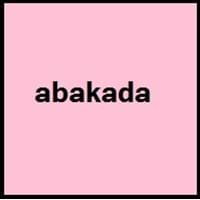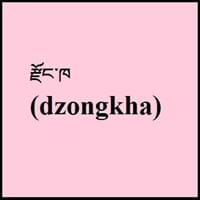Tagalog vs Dzongkha
Countries
Philippines
Bhutan
National Language
Philippines
Bhutan
Second Language
Filipinos
India
Speaking Continents
Asia, Australia
Asia
Minority Language
Australia, Canada, Guam, Hong Kong, New Zealand, Singapore, United Kingdom
India
Regulated By
Komisyon sa Wikang Filipino, National Languages Committee
Dzongkha Development Commission
Interesting Facts
- In 1593, "Doctrina Christiana" was first book written in two versions of Tagalog.
- The name "Tagalog" means "native to" and "river". "Tagalog"is derived from taga ilog, which means "inhabitants of the river".
- Standard romanization of the Dzongkha language is Roman Dzongkha.
Similar To
Filipino, Cebuano and Spanish Languages
Sikkimese Language
Derived From
Not Available
Tibetan Language
Alphabets in
Tagalog-Alphabets.jpg#200
Dzongkha-Alphabets.jpg#200
Scripts
Baybayin
Dzongkha Braille, Tibetan Braille
Writing Direction
Left-To-Right, Horizontal
Not Available
Language Levels
Not Available
Time Taken to Learn
Not Available
Hello
Kamusta
Kuzoozangpo La
Thank You
Salamat po
Kaadinchhey La
How Are You?
Kamusta ka na?
Ga Day Bay Zhu Yoe Ga ?
Good Night
Magandang gabi
lek shom ay zim
Good Evening
Magandang gabi po
Not Available
Good Afternoon
Magandang hapon po
Not Available
Good Morning
Magandang umaga po
Not Available
Please
pakiusap
Not Available
Sorry
pinagsisisihan
Tsip maza
I Love You
Iniibig kita
Nga cheu lu ga
Excuse Me
Ipagpaumanhin ninyo ako
Tsip maza
Dialect 1
Batangas Tagalog
Laya
Where They Speak
Batangas, Gabon
Bhutan
How Many People Speak
Not Available
Where They Speak
Philippines
Bhutan
How Many People Speak
Not Available
Where They Speak
Philippines
Bhutan
How Many People Speak
Not Available
Total No. Of Dialects
Not Available
Speaking Population
Not Available
Native Name
Tagalog
རྫོང་ཁ (dzongkha)
Alternative Names
Filipino, Pilipino
Bhotia of Bhutan, Bhotia of Dukpa, Bhutanese, Drukha, Drukke, Dukpa, Jonkha, Rdzongkha, Zongkhar
French Name
tagalog
dzongkha
German Name
Tagalog
Dzongkha
Pronunciation
[tɐˈɡaːloɡ]
Not available
Ethnicity
Tagalog people
Ngalop people
Language Family
Austronesian Family
Sino-Tibetan Family
Subgroup
Indonesian
Not Available
Branch
Not Available
Tibeto-Burman
Early Forms
Proto-Philippine, Old Tagalog, Classical Tagalog, Tagalog
No early forms
Standard Forms
Filipino
Dzongkha
Language Position
Not Available
Signed Forms
Not Available
Not Available
Scope
Individual
Individual
ISO 639 6
Not Available
Not Available
Glottocode
taga1269
nucl1307
Linguasphere
31-CKA
No data Available
Language Type
Living
Living
Language Linguistic Typology
Object-Verb-Subject, Subject-Verb-Object, Verb-Object-Subject, Verb-Subject-Object
Not Available
Language Morphological Typology
Not Available
Not Available
Tagalog and Dzongkha Language History
Comparison of Tagalog vs Dzongkha language history gives us differences between origin of Tagalog and Dzongkha language. History of Tagalog language states that this language originated in 1593 whereas history of Dzongkha language states that this language originated in 17th Century. Family of the language also forms a part of history of that language. More on language families of these languages can be found out on Tagalog and Dzongkha Language History.
Tagalog and Dzongkha Greetings
People around the world use different languages to interact with each other. Even if we cannot communicate fluently in any language, it will always be beneficial to know about some of the common greetings or phrases from that language. This is where Tagalog and Dzongkha greetings helps you to understand basic phrases in Tagalog and Dzongkha language. Tagalog word for "Hello" is Kamusta or Dzongkha word for "Thank You" is Kaadinchhey La. Find more of such common Tagalog Greetings and Dzongkha Greetings. These greetings will help you to be more confident when conversing with natives that speak these languages.
Tagalog vs Dzongkha Difficulty
The Tagalog vs Dzongkha difficulty level basically depends on the number of Tagalog Alphabets and Dzongkha Alphabets. Also the number of vowels and consonants in the language plays an important role in deciding the difficulty level of that language. The important points to be considered when we compare Tagalog and Dzongkha are the origin, speaking countries, language family, different greetings, speaking population of these languages. Want to know in Tagalog and Dzongkha, which language is harder to learn? Time required to learn Tagalog is 44 weeks while to learn Dzongkha time required is Not Available.





